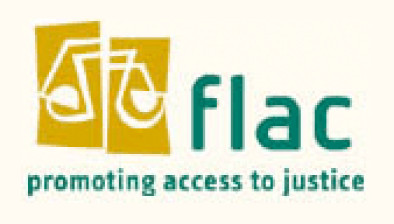Ruling on housing application time limits welcomed by FLAC

Eilis Barry
Legal rights group FLAC has welcomed a High Court ruling clarifying the obligations of housing authorities to process housing applications within the statutory time limits prescribed.
The case, in which FLAC acted for the applicants, concerned an older couple suffering from various health conditions and who had been rendered homeless since 2018.
They made an application for social housing supports in January 2019. Having received no response to their application, they applied to the courts seeking to challenge the effective refusal of the council to make a decision on their housing application.
South Dublin County Council defended the proceedings on the basis that the couple had made an earlier application for housing in 2017 that was still in being and the couple could not make a further application.
It was argued that the council had sought information from the couple in January 2018 regarding their eligibility for social housing supports, and that once that information was provided their housing application could be considered. The information sought by the council was evidence of 52 weeks’ employment in the State, which the applicants did not have and were not likely to have in light of their health circumstances.
In coming to its decision, the court considered the statutory regime involved and took into account that the Housing Acts address the important social objective of assisting the homeless and those without or in need of social housing.
Mr Justice Michael MacGrath commented that it was not surprising that time limits appears frequently in legislation where the need for reasonably immediate action will be obvious.
The judge went on to note that the obligation on a housing authority “to deal with” a housing application under the relevant regulations was one that requires the local authority to either accept or refuse the application, and that the only clarification that can be sought from an applicant must be for the purpose of verifying information relating to that application.
In relation to the stated request for information in January 2018, the judge considered that this was the deferral of a decision by the local authority, but even if this was not the case, this did not preclude the applicants from making a fresh application in their changed circumstances, namely where their health had deteriorated and they had become homeless.
Having made the fresh application it was the obligation of the local authority to address it in accordance with its statutory obligations, whereas the housing authority’s view of their obligations would allow them to defer a decision on a housing application indefinitely.
Welcoming the judgment, FLAC CEO Eilis Barry said: “This is an important judgment, and while it addresses the technical requirements of the housing assessment regulations and the proper interpretation of same, the court also emphasises that this is in the context of the social remedial nature of the Housing Acts, and that the relationship between a housing authority and an applicant can be changing and evolving.
“FLAC supports this view that housing legislation must be responsive to the needs of members of the public as they evolve, and that an applicant for social housing supports should not have their application deferred indefinitely as the local authority purported to do in this case.”










